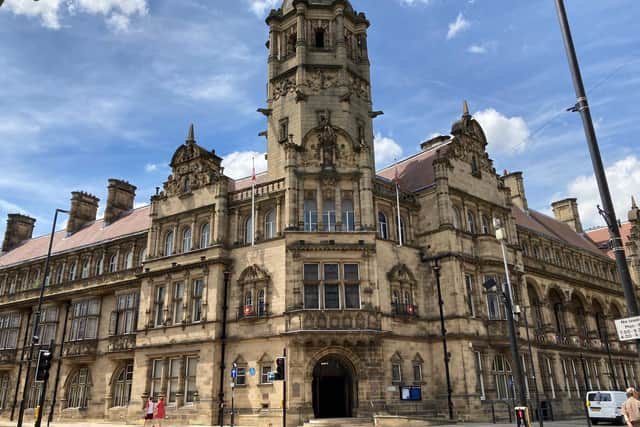Plan to spend more than £500k on three empty Wakefield Council houses for the homeless to reduce £1.7m hotel costs
and live on Freeview channel 276
Wakefield Council currently spends around £1.7m a year on hotel accommodation for homeless people across the district.
Three properties in the city have been identified as suitable for refurbishment to provide eight units of accommodation.
Advertisement
Hide AdAdvertisement
Hide AdA report to the council’s Cabinet states: “The typical hotel room for a single person is £50 per night.


“Housing benefit covers £13.19 of this and therefore the Council has to subsidise the remaining £36.81.
“Over one year this amounts to £13,435 per person.”
The report continues: “The savings are likely to be up to £82,000 per year.
“Over the lifetime of a property this will be a significant ongoing saving to the Council.”
Advertisement
Hide AdAdvertisement
Hide AdThe addresses of the three properties are not stated in the report but the following details are included:
– Wakefield West Ward. A mid terrace two-storey house built around the 1890s. It is estimated that £141,000 is needed to fully refurbish the property with the option for use as three single room lets, with shared bathroom and kitchen facilities.
– Wakefield North Ward. An end terraced property built around 1900 that was formerly a barber’s shop at ground floor and office at first floor. A total of £172,000 is required to convert the property into two flats
– Wakefield East Ward. A four storey end-terrace property built around the 1890s that is already converted into three flats. Refurbishment to bring it up to required legal standards is expected to cost £168,000.
Advertisement
Hide AdAdvertisement
Hide AdIn May 2020, there were 323 households in temporary accommodation, of which 92 were placed in hotels.
The Council’s hotel expenditure increased significantly in 2020/21 due to Covid and currently stands at just over £1.75m.
Cabinet members are being asked to approve spending a total of £570,000 on the scheme.
The report states: “The Council has a statutory duty to secure accommodation for homeless applicants, either on an interim basis, to prevent or relieve homelessness, or to meet the main housing duty.
Advertisement
Hide AdAdvertisement
Hide Ad“Demand for social housing is very high and access to alternative accommodation for those experiencing homelessness can be a challenge.
“Furthermore, this route isn’t necessarily an option for those clients who have complex needs.”
A 12-month time-frame has been put on the project if approved by Cabinet.
The report describes the proposal as “an economy that works for everyone”.
Advertisement
Hide AdAdvertisement
Hide AdIt states: “Decent and affordable housing is available across the district.
“Hotel accommodation should only be used for short periods where no alternative accommodation is available.
“Increased access to dispersed temporary accommodation will reduce the Council’s reliance upon expensive hotel accommodation and provide more suitable temporary accommodation to homeless households.
“This scheme will see void properties being brought back into productive use and help the Council better meet its strategic responsibilities.
Advertisement
Hide AdAdvertisement
Hide Ad“It will also improve the neighbourhoods in which the properties are located as well as reducing the level of empty homes within the district.
“This will allow families to live independently in self-contained accommodation with access to the required facilities to take care of their family, including access to cooking and washing facilities that are not available in hotel accommodation.
“It will also allow families to settle, albeit for a temporary period, within a community and access all local amenities.”
The Cabinet will consider the report at a meeting on Tuesday July 19.
